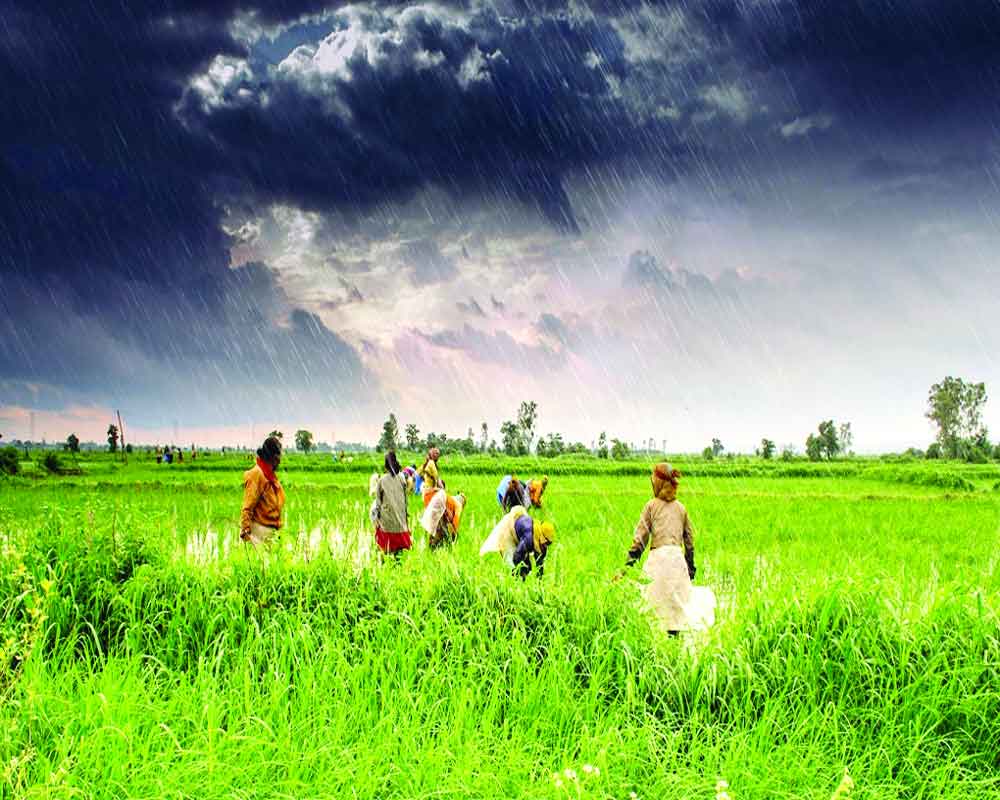Climate change hazards could impact India’s Gross Domestic Products (GDP) in a “non-linear” way by 2030, a McKinsey Global Institute report has maintained. Extreme heatwave and humid conditions could potentially cause a reduction in the GDP between 2.5 and 4.5 per cent, the report stated as it highlighted the unrecognised non-linear aspects of climate change.
The report attributed the GDP reduction to lethal heatwave that would drastically bring down working hours and lead to decline in labour productivity by as much as 15 per cent during days by 2030.
The report further estimated by 2050, both the intensity and exposure to lethal heatwaves, as well as the impact on outdoor work could continue to increase in a non-linear way.
“The number of people living in areas with some likelihood of experiencing a lethal heatwave could rise from zero today to 250 million to 360 million by 2030, with a 9 per cent annual probability of occurring, and to 700 million to 1.2 billion by 2050 with a 14 per cent annual probability of occurring (under an RCP (Representative Concentration Pathway) 8.5 scenario and not factoring in air conditioner penetration).
Knock-on impacts from climate hazards could affect employment, incomes, and connected sectors,” the report stated. The report warned that societies and systems most at risk are close to physical and biological thresholds. “Once thresholds are breached, impacts could be non-linear,” it stated.
The report estimated that addressing some of the risk of lethal heatwaves by 2030, using air conditioning, could cost up to $110 billion. “India will need to adapt through capacity and knowledge building, investment in adaptive technology and infrastructure, and supporting the economy’s transition away from outdoor work,” the report stated.
The report found that all 105 countries examined could experience an increase in at least one type of risk to their stock of human, physical and natural capital by 2030. The share of annual outdoor working hours lost due to extreme heat and humidity in exposed regions would double from 10 per cent today to 15 to 20 per cent by 2050.
According to the India Meteorological Department (IMD), July 2019 was the hottest July ever recorded in the country’s history and 65.12 per cent of India’s population was exposed to temperature of over 40 degrees Celsius between May and June, 2019, the most widespread over four years. In 2016, 59.32 per cent of India’s population faced a heatwave, the number rose to 61.4 per cent in 2017 and fell to 52.94 per cent in 2018. “Global temperature records were broken during the summer of 2019, with the July temperature 1.2 degrees Celsius above the pre-industrial era,” it said.
A study by the Indian Institute of Technology-Gandhinagar said India will see a four-fold rise in heatwaves if global temperature rise is restricted to 1.5 degrees Celsius by the turn of this century. “If the world fails to contain global temperature rise, India could see an eight-fold rise in heat waves,” it said.
The Lancet report 2019 stated 153 billion hours of labour were lost globally in 2017 due to heat, an increase of 62 billion hours relative to 2000. Between 2000 and 2017, the report said labour hours lost in agriculture rose from about 40,000 million hours in 2000 to about 60,000 million hours in 2017.
“Similar trends, although of smaller magnitude, affect the industrial and service sectors, where the effect of climatic conditions is reduced due to less physically strenuous work condition,” it stated.
“Overall, India lost nearly 75,000 million hours of labour in 2017, relative to about 43,000 million hours in 2000, an increase of over 30,000 million hours over two decades. For a developing economy like India, this represents a substantial impact on individual, household and national budgets, necessitating urgent national and regional adaptation plans,” the report said.
























